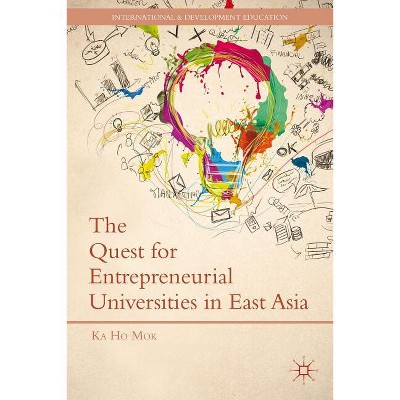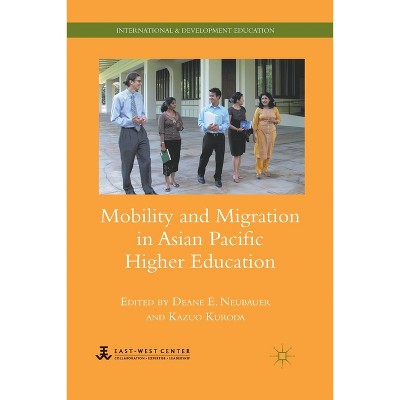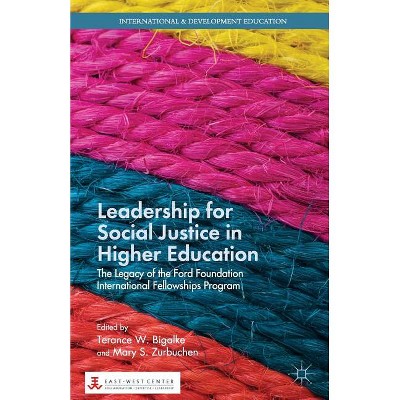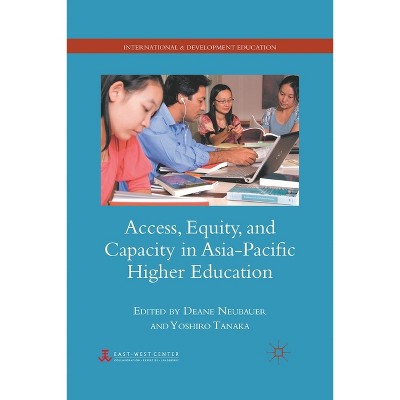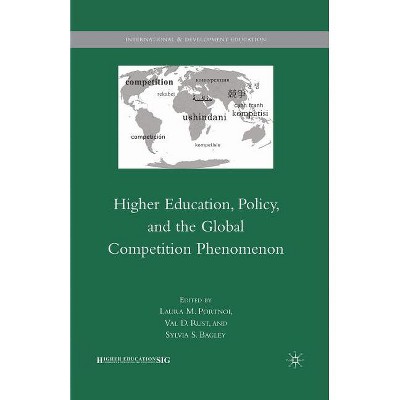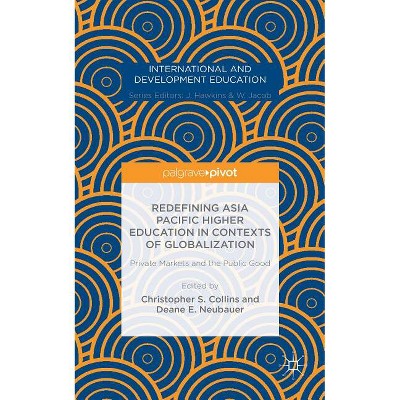Private Universities in Latin America - (International and Development Education) by G Gregorutti & J Delgado (Hardcover)

About this item
Highlights
- Using policy analysis and case study approaches, Private Universities in Latin America examines the significant amounts of research and innovation being made available from private universities in Latin America.
- About the Author: José Anicama, Autonomous University of Peru Édgar Apanecatl-Ibarra, Oklahoma State University, USA Elizabeth Balbachevsky, University of São Paulo, Brazil Antonio José Junqueira Botelho, Cândido Mendes University, Brazil Francisco J. Cantú-Ortiz, Monterrey Institute of Technology and Higher Studies, Mexico Adriana Chiancone, University of the Republic of Uruguay Ángela Corengia, Austral University, Argentina Jorge Enrique Delgado, University of Pittsburgh, USA Ana García de, Center for the Study of State and Society, Argentina Gustavo Gregorutti, Andrews University, USA José Livia, Villarreal National University, Peru Enrique Martínez Larrechea, University of the Enterprise, Uruguay Pedro Pineda, University of the Andes, Colombia Marcelo Rabossi, Torcuato di Tella University, Argentina Claudio Rama, University of the Enterprise, Uruguay Nanette Svenson, Tulane University, USA Stephen P. Wanger, Oklahoma State University, USA
- 308 Pages
- Education, Higher
- Series Name: International and Development Education
Description
About the Book
"Private Universities in Latin America discusses how private universities have become and can be more proactive in supporting research, and the implications of this for future institutional and national development. After providing a historical overview of how Latin American private universities have evolved to become successful research producers, Gregorutti and Delgado analyze specific institutional reforms carried out to overcome cultural resistance to change and implementation of policies related to teaching load, productivity requirements, patent generation, technology transfer, and funding mechanisms that support and stimulate faculty research activities. "--Book Synopsis
Using policy analysis and case study approaches, Private Universities in Latin America examines the significant amounts of research and innovation being made available from private universities in Latin America.Review Quotes
"It is interesting and encouraging to read of how some private universities in Latin America are engaging in research. Research certainly is not a characteristic strength of private universities in either the region or most of the world. Gregorutti and Delgado do us a service by pointing attention to exceptions to the traditional reality and to possibly emerging tendencies." - Daniel Levy, SUNY Distinguished Professor and Director of the Program for Research on Private Higher Education, State University of New York at Albany, USA
"Gregorutti and Delgado reflect on how the private sector has favorably impacted the strengthening of systems and institutions. Conceptual analysis and specific experiences from Argentina, Brazil, Chile, Colombia, and Uruguay converge on the idea of the notable contributions of private universities in the growing, fostering, and consolidation of the research mission of the university." - Pedro Henríquez Guajardo, Director UNESCO/IESALC, Venezuela
"This edited volume provides groundbreaking insights into the work of private universities in Latin America in the areas of science, technology and innovation (STI). The editors have assembled a compelling set of studies from several countries that illustrates the accomplishments of private universities in Latin America with respect to the advancement of STI. An important contribution to the comparative higher education literature, the book can serve as a reference as well as graduatecourse text." - John C. Weidman, Professor of Higher and International Development Education, University of Pittsburgh, USA
About the Author
José Anicama, Autonomous University of Peru Édgar Apanecatl-Ibarra, Oklahoma State University, USA Elizabeth Balbachevsky, University of São Paulo, Brazil Antonio José Junqueira Botelho, Cândido Mendes University, Brazil Francisco J. Cantú-Ortiz, Monterrey Institute of Technology and Higher Studies, Mexico Adriana Chiancone, University of the Republic of Uruguay Ángela Corengia, Austral University, Argentina Jorge Enrique Delgado, University of Pittsburgh, USA Ana García de, Center for the Study of State and Society, Argentina Gustavo Gregorutti, Andrews University, USA José Livia, Villarreal National University, Peru Enrique Martínez Larrechea, University of the Enterprise, Uruguay Pedro Pineda, University of the Andes, Colombia Marcelo Rabossi, Torcuato di Tella University, Argentina Claudio Rama, University of the Enterprise, Uruguay Nanette Svenson, Tulane University, USA Stephen P. Wanger, Oklahoma State University, USA





